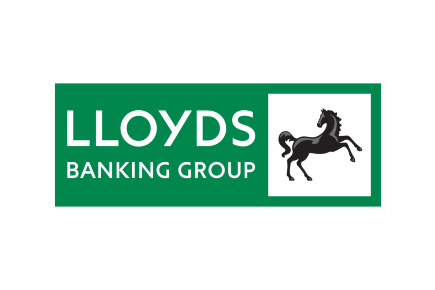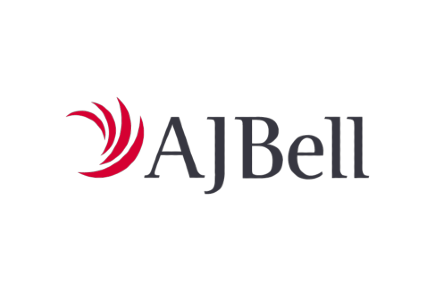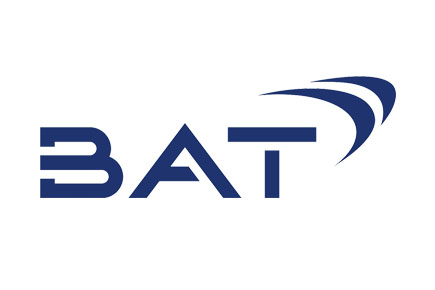I’ve spent years researching and investing in the stock market and I’m here to share my top picks for the best shares to buy. In this article, I share my insights on the best companies to invest in, that I believe are well-positioned for success in the coming months and years.
Trusted partner

80% of retail CFD accounts lose money
2000+ CFDs
- User friendly mobile app
- unlimited CFD demo account
- Trading academy
- Lloyds (LON:LLOY) – Trading below tangible net asset value while profits continue to grow.
- Barclays (LON:BARC) – Lowest cost FTSE 100 bank pick with tremendous growth potential in the medium term.
- easyJet (LON:EZJ) – Undervalued airline with strong cost base.
- Marks and Spencer (LON:MKS) – ‘Inflation-resistant’ retailer that continues to grow from strength to strength.
- Tesco (LON:TSCO)
- AJ Bell (LON:AJB)
- British American Tobacco (LON:BATS)
- Apple (NASDAQ:AAPL)
- Alphabet (NASDAQ:GOOG) – Exposure to AI at fair value with an incredible moat.
- TSMC (NYSE:TSM) – Cheap and indirect AI play for massive long-term gains.
Please Note: These picks are not personal recommendations or financial advice. Do not buy these investments solely based on what you read in this article.

Lloyds is the UK’s biggest mortgage provider and commercial bank by number of customers and operates a number of subsidiaries that include Lloyds, Halifax, Bank of Scotland, and Scottish Widows.
- The market has reacted unfavourably to lower net interest margins (NIM) moving forward, but they’ve also seemingly missed out on the fact that profits continue to grow healthily.
- Lower margins will be offset by loan book growth and improving structural hedge income, with Lloyds’ more affluent customer base also limiting impairment charges – all of which should help to lift its bottom line.
- Even assuming fair value at tangible net asset value (TNAV), there’s a sizeable upside of c.18% with a chunky and progressive dividend yield of c.6.3%.
Read more: Find more detailed analysis on the Lloyds share price forecast and my price target.
You can buy Lloyds shares at most online brokers that offer share dealing accounts.

Barclays is a British universal bank and is known to be part of the big five banks in the UK. It’s also the largest investment bank in the UK and Europe, with a retail and commercial banking arm.
- Oversold bank stock with improving outlook over the medium to long term as investment banking income slowly creeps back up and deal-making rebounds from a bottom.
- Undervalued Consumer Cards and Payments business with plenty of growth potential to offset sluggish investment banking income in the short term.
- Trading below tangible book value which limits downside risks with a growing and above average dividend yield of c.5.9%.
Read more: Find more detailed analysis on the Barclays share price forecast and my price target.
You can buy Barclays shares at most online brokers that offer share dealing accounts.

easyJet is a low-cost British airline. It is the second-largest budget airline in Europe, behind Ryanair, in number of passengers flown.
- Travel demand shows no signs of slowing down and passenger yields continue to grow, which will translate into revenue in due course.
- Higher jet fuel prices present risks, but with the airline having hedged more than half of its fuel already for the year ahead at a much lower price than the current spot, there should be more certainty in the cost structure with downside protection.
- Plenty of room for margin growth as ancillaries as a percentage of passenger revenue continues to grow along with its fast-growing Holidays business.
Read more: Find more detailed analysis on the easyJet share price forecast and my price target.
You can buy easyJet shares at most online brokers that offer share dealing accounts.

Founded in 1884, Marks and Spencer is one of the UK’s oldest companies. The business is renowned for being a clothing, food and home retailer.
- More wealthy shoppers have been resilient to inflation and have been driving sales gains, leading to rapid market share growth.
- Food division is growing despite the cost-of-living crisis thanks to eat-in trends and excellent customer proposition. This puts M&S on track to surpass Waitrose’s market share as soon as 2025.
- Onboarding of third-party brands will do Clothing & Home arm a world of good as it increases the amount of offerings, which should drive further profit growth.
Read more: Find more detailed analysis on the Marks and Spencer share price forecast and my price target.
You can buy Marks and Spencer shares at most online brokers that offer share dealing accounts.

Tesco is Britain’s largest retailer and supermarket. While it’s renowned for selling groceries, it also sells numerous other discretionary products.
- Customers flocking to budget supermarkets seems to have slowed tremendously with customers now returning to purchasing more discretionary, higher-margin items, which should lead to better profitability.
- Expiration of higher-priced hedging contracts on numerous commodities should ease costs in the months and years ahead.
- Progressive dividend and strong capital returns via share buybacks are expected, thereby increasing the value proposition of a stable, blue-chip stock.
Read more: Find more detailed analysis on the Tesco share price forecast and my price target.
You can buy Tesco shares at most online brokers that offer share dealing accounts.

AJ Bell is one of the UK’s top online brokerages and specialises in providing investment management and advisory services to retail investors.
- Its latest Q4 update showed plenty of promise with growing assets under administration (AUA) despite the current macroeconomic environment.
- Growing clientele despite a competitively priced market shows resilience in brand name and reputation, and when paired with a fee structure with healthy margins, there’s plenty of upside.
- Expected to grow profits at a compound annual growth rate of c.19% over the next two years, presenting plenty of upside from its current share price given that the stock is trading near its five-year lows.
You can buy AJ Bell shares at most online brokers that offer share dealing accounts.

British American Tobacco (BAT) is one of the world’s largest tobacco companies. It manufactures and sells cigarettes, tobacco, and alternative nicotine products.
- Cigarettes may eventually become legacy products, but they should continue to act as a strong source of revenue in the near term due to
- BAT’s strong pricing power over its addictive tobacco products.
Market leader in terms of investment and innovation in alternative nicotine products, which helps to diversify its revenue stream and reduce its reliance on traditional cigarettes. - Currently trading at a relatively attractive valuation, offers a monster dividend yield of c.9.3%, providing investors with the potential for both capital appreciation and passive income.
You can buy British American Tobacco shares at most online brokers that offer share dealing accounts.

Apple is the biggest company in the world by market capitalisation. It’s the designer of the many products consumers know and love today that include iPhones, iPads, and MacBooks.
- Recent weakness in stock price may be an opportunity to buy one of the stock market’s biggest winners over the long term. Multiples may not be the most economical but one thing the market has always been wrong about is to bet against Apple.
- Market share losses in China are a cause for concern, but growth in India over the medium term paired with an improved proposition with new products such M3 MacBooks as well as iPhone refreshment cycles should offset this.
- Ever-growing share buybacks and a progressive dividend also helps to improve the proposition on the earnings per share (EPS) front, justifying the premium associated with the stock currently.
You can buy Apple shares at most online brokers that offer share dealing accounts.

Alphabet is one of the world’s biggest companies. It’s the parent company of Google and also earns money from services such as YouTube, Waymo, DeepMind, X, and many more.
- Excellent Q3 numbers in its most recent earnings report were dismissed by the market only because Cloud growth missed estimates. However, this presents a buying opportunity as the underlying business continues to grow healthily with the advertising market also gradually rebounding.
- Still the leading AI conglomerate in the world with DeepMind. Effects of contributions through increased spending and investments in AI should pay dividends in the months and years ahead.
- Analysts still rate the stock a strong Buy with plenty of upside given its forward earnings multiples, which remain substantially lower than its long-term average.
You can buy Alphabet shares at most online brokers that offer share dealing accounts.
TSMC is the world’s biggest micro-chip foundry . It manufactures and designs a variety of advanced chips for the world’s largest tech companies that include Apple, NVIDIA, AMD, and many others.
- Recent Q3 earnings results beat analyst expectations on both revenue and earnings, with positive comments from management on chip demand nearing or having hit a bottom.
- Slowly ramping up production of 3nm chips, which the fabricator expects to have higher margins, and giving TSMC the first-mover advantage in the groundbreaking chip in the market. This should amplify its margins and profits even further.
- As compared to its other peers and AI-related stocks, the shares are trading at an extremely reasonable valuation considering the amount of profits it stands to gain in the coming years.
You can buy TSMC shares at most online brokers that offer share dealing accounts.
Please note: John Choong has positions in Lloyds, Barclays, easyJet, Rolls-Royce, Marks and Spencer, Alphabet, and TSMC. Share tips are not personal recommendations or advice and should never be treated as such.
The value of your investments (and any income from them) can go down as well as up and you may not get back the full amount you invested. Past performance is not a reliable indicator of future performance. Investments should be considered over the longer term and should fit in with your overall attitude to risk and financial circumstances.
1. Choose a stockbroker or investment platform: Find an investment platform or stockbroker that has the right services or good fees and commission rates for what you want to buy
2. Deposit funds: Next, deposit funds into your account. Remember to only deposit as much as you can afford
3. Do your research: Once you’re set up on a platform, do your research. Read around expert opinions of the best UK share prices
4. Buy your shares: Finally, you can start buying shares.
For a more detailed overview, read my guide: how to buy shares in the UK
Is now a good time to invest?
With the UK stock market going through an economic malaise, investors might wonder whether this really is a good time to invest. After all, it may seem scary when the FTSE 100 continues to trade sideways while inflation continues to run hot.
But as an investor, things also need to be kept in perspective. Bear markets and stock market corrections happen, and smart investors actually look at them as opportunities to buy great companies at discounted prices.
Therefore, investors ought to focus on quality rather than sensational headlines. Find resilient businesses with strong leadership, a good business model, and competitive advantages that will carry them through tough times. In fact, the UK market is home to plenty of dynamic, world-class companies trading at their biggest discounts in over a decade. This could present numerous opportunities for investors to buy cheap shares.
But investors should also remember to stay diversified and keep a long-term mindset. Industries like healthcare, consumer staples, and utilities may hold up better when volatility strikes. Meanwhile, defensive dividend payers can also provide steady income.
By tuning out the noise and putting new money to work selectively, investors can make the most of this bearish sentiment. Don’t forget, the UK still has strengths despite the gloom – and its top companies have navigated challenging environments many times before.
Patience and an eye for value could really pay off down the road. So don’t let the market’s ups and downs scare put investing off. Now may actually be a good time to go shopping selectively for bargains while others are fearful. As Warren Buffett once said, “Be fearful when others are greedy, and greedy when others are fearful”.
How long should I invest for?
When it comes to investing, “time in the market, not timing the market” is one of the golden rules. When doing research into investing in UK shares, you may notice that many investments are described as long-term commitments.
The key point here is that the longer you invest, the greater your potential for making a profit. So, if you want to mitigate your exposure to risk, you may want to leave your money invested for at least five years to ride out any potential volatility.
How can diversifying my assets help me?
If you want to minimise your exposure to risk, one of the best ways to do this is by diversifying your portfolio. Essentially, this is the art of not putting all of your eggs in one basket.
By spreading out your assets over a range of different sectors, asset classes, and often physical locations, you can reduce your portfolio’s exposure to risk. This means that if there’s a market crash in a particular economic area, the impact on your portfolio will be limited. Furthermore, gains in other sectors may even make up for a loss.
For example, during the initial lockdown in 2020, there was significantly less traffic on the roads and many jobs had to be put on hold. This meant that there was a much lower demand for fuel and so oil prices fell sharply.
If you had heavily invested in an oil company, you would have lost a lot of money. However, if you had invested in social media companies when everyone was stuck at home instead, the gains from those would’ve offset the losses of the oil stocks.
What are some risks I need to be aware of?
Whenever you invest, it’s important to be aware that no matter how well-informed you are, there is always the risk of losing money. Even if a specific stock seems like a good investment, stock market fluctuations can mean that you never fully know how an investment will perform.
For example, future disruptions in the supply chain could impact stock price movements. This is why it is important to have a reasonably long investing horizon in order to ride out any difficult periods.
Since investing carries a large amount of risk, it’s important never to commit more money than you would be willing to lose. Of course, if you want to minimise this chance then it can often be beneficial to seek independent advice when dealing with financial matters.
What are growth stocks?
Growth stocks are shares of companies that have the potential to increase their earnings and profits at a faster rate than the average company in the market. These companies are typically in a phase of rapid expansion and are expected to continue growing at an above-average pace in the future.
Investing in growth stocks can be attractive to investors because they offer the possibility of significant capital appreciation. When a company grows its earnings and profits, its stock price tends to increase as well. This means that if you invest in a growth stock and the company performs well, the value of your investment can rise rapidly over time.
Growth stocks are often associated with companies in innovative and emerging industries, such as technology, biotechnology, or renewable energy. These companies may be developing new products or services, expanding into new markets, or experiencing increasing demand for their offerings.
Nonetheless, it’s important to note that investing in growth stocks may also carry a significant amount of risks. Since these companies are often at a high-growth stage, their stock prices can be more volatile and subject to larger price swings than established, slower-growing companies. As such, it’s important to carefully research and evaluate the potential risks and rewards before investing in growth stocks.
What are value stocks?
On the other hand, value stocks are stocks that seem to be trading at less than what they’re really worth.
The goal here is to find companies whose shares are priced lower than their intrinsic value. This means looking past temporary challenges or market gloom to see the underlying quality of the business. This is one of Warren Buffett’s favourite strategies before buying a company – identifying good value.
A value investor looks for stocks with strong fundamentals that are under-appreciated by the broader market. This requires digging into financial statements, assessing management, and having a little contrarian spirit.
While growth stocks can be flashy and exciting, value stocks tend to be mature, sturdy companies with steady dividends and loyal customers. These tend to include mega-cap companies such as Tesco, AstraZeneca, and Lloyds.
The key is having patience and believing the market will eventually recognise the true worth of these discounted stocks. Some call it boring, but uncovering hidden gems that other investors overlook can be rewarding. Value stocks may not make headlines, but investors can always find that diamond in the rough on sale during market corrections.
While you may or may not agree with many of my share choices, you may also wonder how I came to these conclusions as it can be important to take careful and considered investment advice. As you may well know, you should never blindly trust something you read on the internet.
If you’re curious why I chose these, here are the four essential ways that I decide which are the best shares to consider:
Market news
As you might imagine, one of the most crucial things to do when choosing investments is to keep a close eye on important stock market news.
While you can never fully predict future results, researching and analysing these events have helped me and can help you to identify likely market movements that could boost the value of share prices.
While you can never be right 100% of the time, thorough research can help me to work out which stocks could perform well in the future.
Fundamental analysis
Once I’ve done my research on important financial events and highlighted a potential stock, the next step is to do some deeper analysis. This involves looking at a company’s recent history, such as its annual revenue, average gross profit, business activity, and whether the company pays dividends.
I go into quite extensive detail about these companies in my share tips.
This can help me to get an idea of the intrinsic value of a stock, and whether the market is pricing it correctly. These can often be sensible choices if you’re looking for future growth.
Analyst ratings
Lastly, while our team is made up of professionals, it never hurts to get a second opinion. This is why we often cross-check our findings with those from external analysts. If our predictions line up with theirs, we can be more confident in recommending our picks to you.
How can seeking personal advice help me?
When it comes to investing, there can be a lot of things to have to bear in mind. You need to choose the best investments for you, according to your risk tolerance, as well as diversify your portfolio while managing any potential tax bills that you incur.
This can be difficult to manage, and if it’s all too much, it could impact your investing performance and reduce your profits. If you want to avoid this, working with a financial advisor could be a useful option for you for personal advice on any investment decision.
One of the main benefits of working with an advisor is that they can help you to make a properly informed decision when growing your wealth, which can give you greater confidence.
They can also act as a sounding board if you’re ever unsure whether a particular investment would fit your risk tolerance. Furthermore, if you ever want to reassess your investing strategy regarding risk, they are in a good position to help you make an impartial decision.
Related articles

